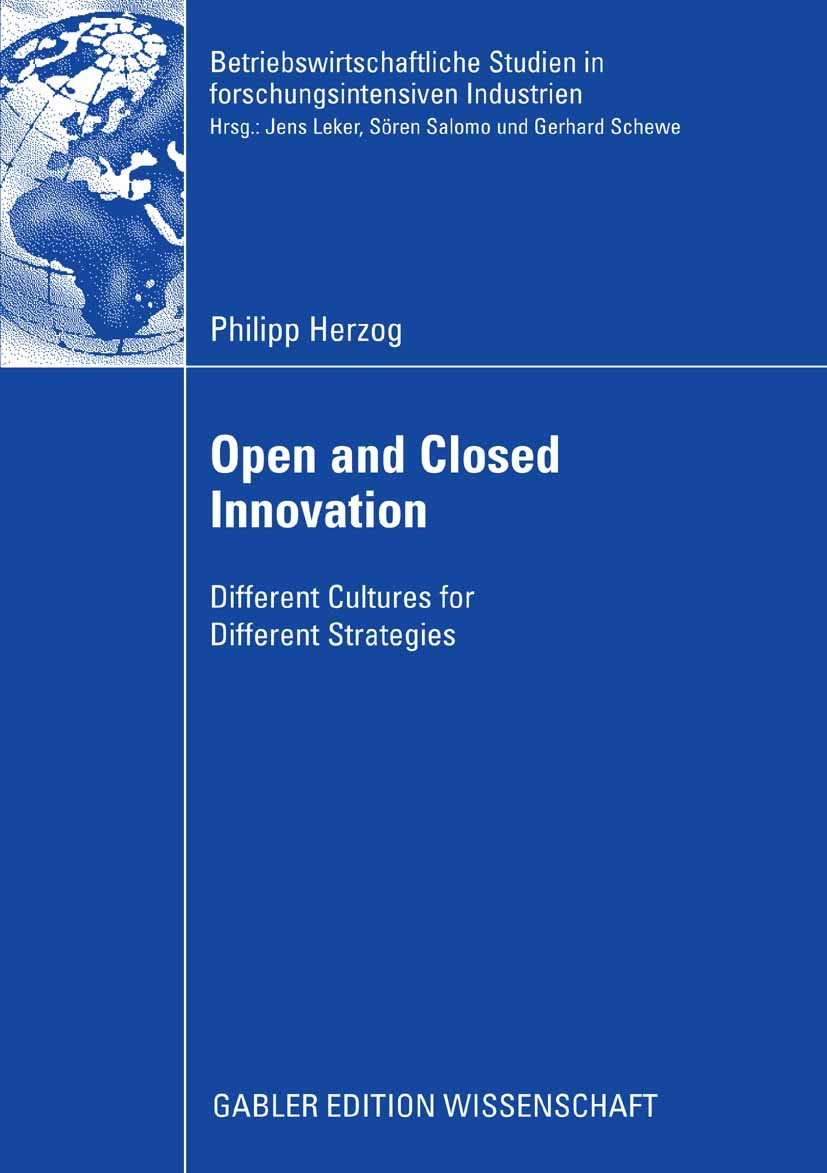| 書(shū)目名稱(chēng) | Open and Closed Innovation |
| 副標(biāo)題 | Different Cultures f |
| 編輯 | Philipp Herzog |
| 視頻video | http://file.papertrans.cn/702/701894/701894.mp4 |
| 叢書(shū)名稱(chēng) | Betriebswirtschaftliche Studien in forschungsintensiven Industrien |
| 圖書(shū)封面 |  |
| 描述 | Firms acting in an environment of rapid technological change are often dependent on externally developing knowledge sources in order to generate radical innovations. This pressing need of integrating external R&D sources has forced many firms to shift from a Closed Innovation model to an Open Innovation model. In the chemical industry – as the industry of focus in the present work – the innovative force slowed down in the last 20 years. As a consequence, many chemical firms strive for implementing new forms of innovation management and follow an innovation strategy that involves the external environment to a greater extent. They implement the Open Innovation concept by setting up separated organizational units (e.g. Degussa’s ‘Creavis Technologies & Innovation’ or BASF’s ‘Joint Innovation Lab’), which focus on innovation projects that cannot be operated by their internal R&D departments alone. However, many firms are facing difficulties during the implementation. While the implementation effort often focuses on external ideas and technologies and the processes to identify them, cultural challenges are neglected. |
| 出版日期 | Book 2008 |
| 關(guān)鍵詞 | Chemical Industry; Chemische Industrie; Innovationskultur; Innovationsmanagement; NIH Syndrom; innovation |
| 版次 | 1 |
| doi | https://doi.org/10.1007/978-3-8349-8090-8 |
| isbn_ebook | 978-3-8349-8090-8Series ISSN 2627-2997 Series E-ISSN 2627-3004 |
| issn_series | 2627-2997 |
| copyright | Gabler Verlag | Springer Fachmedien Wiesbaden GmbH, Wiesbaden 2008 |
 |Archiver|手機(jī)版|小黑屋|
派博傳思國(guó)際
( 京公網(wǎng)安備110108008328)
GMT+8, 2025-10-5 16:32
|Archiver|手機(jī)版|小黑屋|
派博傳思國(guó)際
( 京公網(wǎng)安備110108008328)
GMT+8, 2025-10-5 16:32


